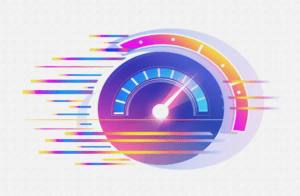Geolocation and other data have been linked to the business world for a while now. In fact, the ability to know the physical location of a person or network based on their IP address has been a key to businesses’ success for a while now. You have probably come across a few products now that have advertised this ability by now. In fact, Google Analytics provided Network Location and Service Provider information from IP addresses up until Feb 2020. They still provide geographic, demographic, and other criteria of visitors. Other tools help track your location to trigger location-aware apps, targeted advertisements and customized eCommerce content. This data can be crucial to marketing and sales teams. All data can be gathered easily from the right IP data APIs.
Why Is This Important?
Many companies want to use this information for their sales and marketing use cases as it can help identify where visitors are coming from. Also, in some cases, seeing what companies visit your site to help your sales outreach. It is also important to understand who is visiting your site and where they’re located in case of cyberattacks. With the world continually developing digitally, cyber-attacks and malicious software are on the rise. Companies need to do everything they can to help mitigate these events and in the case that they do happen, they have the data needed. When dealing in this world, cyber professionals find geolocation, IP addresses, ISP, etc. extremely beneficial.
Product Landscape
Not all geolocation IP data APIs are built the same. Some might focus on providing data variety, where some others focus on a limited field range but are more accurate as they focus on these few fields. Also, some focus on data points that cybersecurity professionals find important. While others are more suited for sales and marketing use cases. This will drastically change the way to use these tools and which ones you find to fit your needs.
For example, cybersecurity does not need a zip code or postal code but requires latitude and longitude information. Where a sales and marketing use case would be more interested in the zip or postal code and not necessarily put much value on coordinates. Another example is cybersecurity may not be worried about time zones but will want to know the ISP behind the IP address.
With a better understanding of the current product landscape, here is a shortlist of the top 5 IP data APIs.
Best IP Data APIs
IpInfo.io
IpInfo.io is a reliable and fast API founded by the former Facebook engineer, Ben Bowling. IpInfo was founded back in 2013 and in their time since founded, they have achieved heights in success and have become a go-to company for IP address reversal. This tool allows you to not only pinpoint the user locations, but also find out crucial data on the ISP, IP type, and carrier. All of this data is easily accessible with developer-friendly documentation. With this software, you can discover the geolocation, ASN/ISP info, company, carrier, and more information of your visitors. IpInfo offers both free and paid plans which allow you to test the product before making a final decision.
Geo.ipify.org
Geo.Ipify provides the geolocation of IP addresses and has a 99.5% coverage of the address space with over 15 million IP locks and locations in their database. The best coverage of IP addresses is within North America and Europe. They claim that every month they are adding hundreds of thousands of new records to their database to improve coverage. Based on the IP address, users are able to determine the country, state, coordinates, time zone, city, postal code, and more. Users can utilize this service and up to 1,000 queries per month without any financial obligation
DB-IP
DB-IP has the infrastructure that spans across multiple continents in order to identify the maximum number of IP addresses. Similar to the tool above, the majority of their coverage is in North America and Europe. Their API is compatible with various third-party services like Geonames. With this tool, you are able to gather the IP address, continent code, continent name, country code, country name, state/province, and city. This information is helpful as they give you the code names and a new way to sort and search by.
Ip-geolocation.whoisxmlapi.com
WhoisXML gathers data from multiple entities in order to identify the most IP address and gather the most amount information possible. This company claims to have over 99.05% of the IP space today (including IPv4 and IPv6). The data provided includes country, region, city, postal code, latitude and longitude, timezone, and an array of domains associated with IP addresses. Using this API is easy as it has compatibility with different programming languages such as Java, PHP, C#, NodeJS, Javascript, Perl, Ruby, and Python. This allows you and your team to use the language you want without making any large changes. Like many of their competitors, they have a free version available that allows up to 1,000 IP addresses identified. Before having to choose a subscription plan. This paired with the ease of connection with their IP data APIs makes it an easy tool to test.
IP2Location.com
IP2Location says they have an IP search technology that is not as intrusive as their competitors when collecting geolocation data. Their REST IP data APIs supply details on IP addresses such as region, city, latitude, longitude, zip code, time zone, and ISP. All data is collected from their own personal database which houses over 4 billion unique records and supports both IPv4 and IPv6. With their extensive documentation online to support clients setting up their connection and the ability to interact with various different programming languages, it is one of the easiest tools to connect.
Wrap Up
These tools can seem like they all provide the same or similar functionality. But there can be a massive difference from one tool to another depending on your region and where you operate. As it can be the opposite of where their maximum coverage is. This is why it is important to test the different tools to see the coverage of your visitors. It is not beneficial if you pick one that fits the criteria of programming language or price, but only provides half the data or the data isn’t reliable. Thankfully most (if not all) of the tools on the market allow for “X” number of IP addresses identified. For you to test and some tools even allow for “X” number per month for free. This can be valuable to some teams that are just starting and might not have as many IP addresses to identify.
 Identify
Identify Personalize
Personalize Benchmark
Benchmark Agencies
Agencies Integrations
Integrations Case Studies
Case Studies Use Cases
Use Cases Blog
Blog Resources
Resources









